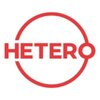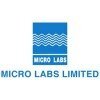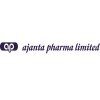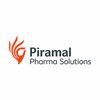Filter interviews by
Shilpa Medicare Interview Questions and Answers
33 Interview questions
DCS is used for continuous control of complex processes in industries, while PLC is used for discrete control of machinery and equipment.
DCS is typically used in industries such as oil and gas, power plants, and chemical plants for continuous control of processes.
PLC is commonly used in manufacturing industries for discrete control of machinery and equipment.
DCS allows for centralized control of multiple control l...
Following guidelines involves understanding, implementing, and adhering to established rules and procedures.
Read and familiarize yourself with the guidelines thoroughly
Ask for clarification if any part of the guidelines is unclear
Implement the guidelines in your work or tasks
Regularly review and update your knowledge of the guidelines
Seek feedback on your adherence to the guidelines
I have a Bachelor's degree in Business Administration from XYZ University.
Bachelor's degree in Business Administration
XYZ University
I have extensive experience in leadership roles and a proven track record of successfully managing teams and achieving targets.
Strong leadership skills demonstrated through previous roles
Proven track record of meeting and exceeding targets
Excellent communication and interpersonal skills
Ability to motivate and inspire team members
Experience in strategic planning and decision-making
I have faced audits in my previous role as a Deputy Manager.
I have faced audits from both internal and external auditors.
I have experience in preparing for audits, gathering necessary documentation, and participating in audit meetings.
I have successfully addressed audit findings and implemented corrective actions to improve processes.
I have been involved in audits related to financial records, compliance with regu...
I recently observed discrepancies in inventory management during an audit.
Identified inconsistencies in inventory records vs physical count
Noted lack of proper documentation for inventory transactions
Discovered expired or damaged inventory items not properly accounted for
Yes, I am okay with a 20% hike.
I am happy with the offer and appreciate the increase in salary.
I believe my skills and experience justify the hike.
I am excited to continue contributing to the company's success.
I am open to discussing any additional benefits or opportunities.
Warehouse role involves managing inventory, receiving and dispatching goods, and ensuring efficient storage and retrieval.
Managing inventory levels and ensuring stock availability
Receiving and dispatching goods accurately and efficiently
Organizing and maintaining the warehouse space
Ensuring compliance with safety and security regulations
Collaborating with other departments to optimize supply chain processes
Process validation is the documented evidence that a process is capable of consistently producing a product that meets its predetermined specifications and quality attributes.
Process validation is a critical part of quality assurance in manufacturing.
It involves testing and verifying that a process consistently produces a product that meets its specifications.
Process validation typically involves three stages: pro...
HVAC stands for Heating, Ventilation, and Air Conditioning.
HVAC is a system used to control the temperature, humidity, and air quality in a building.
It includes heating, cooling, ventilation, and air filtration systems.
HVAC systems are commonly used in residential, commercial, and industrial buildings.
Examples of HVAC equipment include air conditioners, furnaces, boilers, and ductwork.
Proper maintenance of HVAC sy...
Shilpa Medicare Interview Experiences
52 interviews found
I appeared for an interview in Nov 2024, where I was asked the following questions.
- Q1. What was the achievements
- Ans.
Successfully led teams to achieve operational excellence, enhance customer satisfaction, and drive revenue growth.
Implemented a new training program that improved employee performance by 20%.
Increased customer satisfaction scores by 15% through enhanced service protocols.
Streamlined operations, reducing costs by 10% while maintaining quality.
Led a cross-departmental project that resulted in a 25% increase in sales over...
- Q2. What was negative
- Ans.
In my previous role, I faced challenges with team communication and project delays, which impacted overall performance.
Team communication issues led to misunderstandings on project goals.
A specific project was delayed due to lack of clarity in roles and responsibilities.
Feedback from team members indicated a need for more structured meetings.
I learned the importance of establishing clear communication channels early on...
- Q3. Manpower handling
- Q4. Technical knowledge
- Q5. Relocation interested
(2 Questions)
- Q1. Cleaning type of area
- Ans.
Maintaining cleanliness in all areas of the warehouse is essential for safety and efficiency.
Regularly sweep and mop floors to remove debris and spills
Empty trash bins and recycling containers daily
Clean and sanitize restrooms and break areas regularly
Organize and declutter storage shelves and racks
Implement a schedule for deep cleaning tasks such as dusting and window washing
- Q2. Area classification under rlaf
- Ans.
Area classification under rlaf refers to the categorization of different areas within a warehouse based on their risk level and fire protection requirements.
Areas are classified as high, medium, or low risk based on factors such as the type of materials stored, presence of flammable substances, and proximity to ignition sources.
High-risk areas may include storage areas for flammable liquids or gases, while low-risk are...
Interview Preparation Tips
I applied via Naukri.com and was interviewed in Apr 2024. There were 2 interview rounds.
(1 Question)
- Q1. What is your name
- Ans.
My name is Alex, a name that carries a sense of strength and versatility, often associated with leaders and innovators.
Alex is a unisex name, popular in many cultures.
It can be a short form for Alexander or Alexandra.
Famous people named Alex include Alex Trebek and Alex Morgan.
(1 Question)
- Q1. What is 21cfr and following
Interview Preparation Tips
Deputy Regulatory Affairs Manager Interview Questions & Answers
posted on 8 May 2023
I applied via Naukri.com and was interviewed in Apr 2023. There were 2 interview rounds.

(4 Questions)
- Q1. What is the time lines for CEP approvals
- Ans. Based on recent guidance it is approx mately 12 months, please refer the Edqm guidance.
- Q2. Current trend of deficiencies.
- Ans. Nitrosamines and genotoxic impurities, azido impurities nitroso API absense and process capabilities
- Q3. Which guidelines followed for nitrosami e limits
- Ans. Us agency & Eu agency released the guide lines for follow the limits and methods.
- Q4. Method validations life cycle amendments
- Ans. In line with ICH Q14 guideline analytical method validation s are always to be update with current available instruments and updates will be submit with agency
Interview Preparation Tips
- Ich quality
- Edqm guidance
- Nitrosamines
- Ichm7

(3 Questions)
- Q1. What is qualification and validation What cararonator
- Q2. Qualification is act planning ,carriyng out of recording of test on equipment/system which part of validated process, to demonstrate that it will be performed as intended
- Q3. Cartontor this is packing machine for aut package inner cartoon and multiple control are there.
(1 Question)
- Q1. Serialisation and aggregation
(1 Question)
- Q1. For salary discussion and promotions
Interview Preparation Tips
I applied via Walk-in and was interviewed before Sep 2021. There were 2 interview rounds.

(5 Questions)
- Q1. What is your qualifications?
- Q2. Why should you look the job in shilpa team?
- Ans. I need good knowledge and experience about pharmaceutical and sap.
- Q3. What is an economics??
- Q4. What is marketing?
- Q5. Tell me about shilpa Medicare limited?
Interview Preparation Tips
- Accounts Payable

(4 Questions)
- Q1. Nothing_ 2 year bond whether r u ready or not?
- Ans.
The candidate should answer whether they are ready or not for a 2-year bond.
Consider your current commitments and future plans before deciding
Evaluate the benefits and drawbacks of a 2-year bond
Assess your career goals and how the bond aligns with them
Think about the potential impact on work-life balance and personal growth
Consider negotiating terms and conditions of the bond if necessary
- Q2. Ok with 20% hike
- Ans.
Yes, I am okay with a 20% hike.
I am happy with the offer and appreciate the increase in salary.
I believe my skills and experience justify the hike.
I am excited to continue contributing to the company's success.
I am open to discussing any additional benefits or opportunities.
- Q3. Nothing , we will assure u next year 20% hike(finally that is whole trape& bull shit)
- Q4. Ntg.........................................
Interview Preparation Tips

(1 Question)
- Q1. Depends open Cv. What you are write in your CV, That only they are asking. Like Process, Document, cleaning CAPA,GMP, Equipment Handling etc.
(1 Question)
- Q1. About your self, Family background

(2 Questions)
- Q1. Questions Related to Aseptic Procedure
- Q2. EU Annex.1 guidelines related

(1 Question)
- Q1. What is educational background
- Ans.
I have a Bachelor's degree in Business Administration from XYZ University.
Bachelor's degree in Business Administration
XYZ University
(1 Question)
- Q1. About ICH guidelines
Top trending discussions






Shilpa Medicare Interview FAQs
The duration of Shilpa Medicare interview process can vary, but typically it takes about less than 2 weeks to complete.
Tell us how to improve this page.
Shilpa Medicare Interviews By Designations
- Shilpa Medicare Executive Interview Questions
- Shilpa Medicare Production Chemist Interview Questions
- Shilpa Medicare Chemist Interview Questions
- Shilpa Medicare Senior Executive Interview Questions
- Shilpa Medicare Quality Controller Interview Questions
- Shilpa Medicare Junior Executive Interview Questions
- Shilpa Medicare Assistant Manager Interview Questions
- Shilpa Medicare Operator Interview Questions
- Show more
Interview Questions for Popular Designations
Overall Interview Experience Rating
based on 37 interview experiences
Difficulty level
Duration
Interview Questions from Similar Companies
Shilpa Medicare Reviews and Ratings
based on 753 reviews
Rating in categories
Hyderabad / Secunderabad
2-7 Yrs
Not Disclosed
|
Senior Executive
354
salaries
| ₹5.3 L/yr - ₹12 L/yr |
|
Executive
304
salaries
| ₹3.9 L/yr - ₹8.5 L/yr |
|
Assistant Manager
197
salaries
| ₹8.3 L/yr - ₹15 L/yr |
|
Senior Chemist
170
salaries
| ₹3.5 L/yr - ₹7.8 L/yr |
|
Officer
166
salaries
| ₹2.2 L/yr - ₹6.3 L/yr |

Hetero

Abbott

Micro Labs

Ajanta Pharma
- Home >
- Interviews >
- Shilpa Medicare Interview Questions













